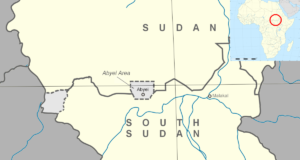By Matthew Lower – Senior Fellow
1st February 2014, Policy Brief, Issue 2, No. 1.
Whilst there is reason to be positive about the ongoing Geneva negotiations between the Assad government and the opposition, the general consensus is that there is little chance of these talks leading to any substantial progress.
The reason for this underlying feeling is as clear as it is familiar, the rebels ultimately demand Assad goes, Assad refuses to do so. The opposition (consisting of the Western-backed Syria National Coalition), are weak, exhausted by simultaneous conflict with the organised and Russian/Iranian backed Assad government and increasingly influential Islamist groups.
It has become difficult to envision an ideal outcome of the now intractable conflict. Recalling the calls for a diplomatic solution in Libya, the key issue was neither group would ever yield to the others conditions, as ultimately, they both believed they could either win, or could not be defeated by the other. The growing presence of Al Qaeda-affiliated groups complicates the situation further, and gives Assad a certain legitimacy in demonstrating the risks of a political void should he leave. Assertions such as Australian Prime Minister’s Tony Abbott’s that this is a conflict of “baddies versus baddies” are common.
In the meantime, the conflict is an overwhelming humanitarian catastrophe. Roughly 130,000 people have died in the crisis so far (including around 2,000 in the week and a half since the Geneva talks began1). Atrocities are committed on a daily basis, by the regime, but also by the rebels (including ‘moderate’ groups). A recent report with a cache of over 50,000 photographs presented examples of barbarism under the Assad regime2 calls for such action now appear fantasy. Intervening is politically infeasible, and perceived as practically so (for good reason). The ideal moment for intervention has long since passed, when the opposition was relatively strong and united and the mood for intervention substantially more accepting than it is now.
The rather less ideal ‘trigger’ for action, in the use of chemical weapons, was fumbled in the now characteristically clumsy Western diplomacy surrounding Syria. The eventual agreement revealed the lack of desire on the West’s part for any substantive action, instead granting legitimacy and a form of partnership with the Assad regime in agreeing to relinquish their chemical weapons.
The West has very openly tied itself to an ultimate end-goal of regime change in some form. Whilst arguably inevitable if the situation is to be resolved, this does limit the lengths diplomacy can take us. Furthermore, even minor resolutions in the Security Council have been made impossible, as Syria’s backer Russia – already distrustful following what it perceived as the over-stretching of the UN resolution authorising intervention in Libya – continues to protect its ally.
Clutching at Straws
In view of this bleak outlook, options have been presented to address the balance on the ground. The current issue of the Economist (notably hawkish with regard to Syria) argues that if we in the West are serious about improving the current situation, we should begin arming the rebels.3 The subsequent news that the US congress has agreed to begin providing arms to ‘moderate’ groups is a potentially significant step in the conflict.4
In many ways this argument has validity. The Assad regime already receives heavy material support from Russia and Iran, including heavy armaments and sophisticated anti-aircraft systems. Addressing the balance would give the rebels (and their western backers) more leverage at the negotiating table, and hopefully reassert moderate rebel group’s dominant position over competing and often extremist alternatives. It is worth noting that the Saudi’s have been providing the rebels with arms since early on in the conflict.
However, one should view this prospect with some caution. Even if (as the Economist believes) these arms would not fall into the hands of extremist groups – the primary fear of Western politicians (who have previously cut aid when it was allegedly being received by such groups5) – there is no guarantee such action would achieve these hoped for results.
To begin, it is unlikely supplying arms would provide any definitive advantage sufficient to end the crisis alone. This is recognised by advocates, who argue such actions are instead intended to redress the balance of power, hopefully leading to a mutually hurting stalemate between the belligerents, leading to more serious negotiations.
Recalling the earlier example of Libya, it is entirely possible such actions would serve to elongate and escalate the conflict further, feeding into what is already an ongoing proxy war between Iran and Saudi Arabia. Additionally, providing the rebels with arms will render diplomacy more difficult in the short term, as Assad and his backers are unlikely to discuss solutions with those arming his opposition. One is caught between this fear and the knowledge that the regime will continue to receive foreign support regardless of the West’s actions.
As a further issue, whilst these actions may be just in addressing the balance with the clearly thuggish and illegitimate Assad regime, they would struggle to be defined as humanitarian.
Arming the rebels in Libya was one of the commonly cited arguments put forward to demonstrate a lack of humanitarian intent behind the intervention, but instead geopolitical king-making and regime change. As Jonathan Eyal – from the Royal United Services Institute – skilfully demonstrated, such actions may have played a role in ending the crisis more quickly, but are very difficult to justify under R2P. 6 This was one of the factors cited as undermining the Libyan intervention’s legitimacy as a whole, an argument made by some of the key thinkers behind R2P such as Gareth Evans and Ramesh Thakur.7
As a means to an end, arming the rebels may be an useful policy, but whether it produces humanitarian benefits would be highly speculative assertion. Indeed, particularly following the controversial elements of the Libyan intervention, if these actions were associated with R2P it may produce significant fallout for the concept.
 Human Security Centre Human Rights and International Security Research
Human Security Centre Human Rights and International Security Research




